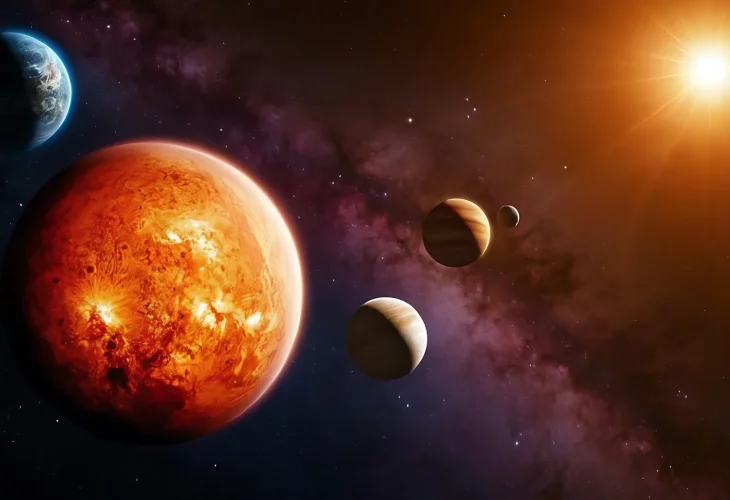In Search of God
The Universe Is Not Random: How Physics Reveals the Precision of Divine Design
Why galaxies, atoms, and stars follow exact mathematical laws — and what this teaches us about the Creator
 (Photo: Shutterstock)
(Photo: Shutterstock)Many have heard isolated scientific facts about space and drawn the mistaken conclusion that galaxies form themselves out of scattered materials, or that stars appear and vanish randomly.
It’s important to correct this widespread misunderstanding.
Physics is deterministic. That means it describes a fixed, consistent system of laws — not random or spontaneous evolution. Contrary to popular belief, there is no scientific claim in physics that the universe developed by chance.
A Simple Analogy: The Video Game Code
Imagine a child watching a video game for the first time. He sees figures — lions, horses, birds — moving across the screen and might assume they appear by themselves, walking or flying as they please.
Anyone who understands computers knows that every movement is governed by code written by programmers. The figures act according to precise commands: a lion cannot suddenly become a horse, and a bird cannot fly without the programming that allows flight.
Even if their motions look spontaneous, they are actually restricted by underlying rules. Without those digital “laws,” nothing would appear on the screen.
The Universe Works Exactly the Same Way
The cosmos operates according to an extraordinarily precise mathematical program — what we call the laws of nature. These laws are like the software code of creation: elegant mathematical equations that dictate how matter and energy behave, leaving no room for randomness.
Atoms exist because nuclear forces bind protons and neutrons together, while electrons orbit the nucleus in predictable energy levels.
Matter behaves consistently because it follows the principles summarized in the periodic table — a structured design of over a hundred chemical elements.
Gravity ensures that Earth orbits the Sun, and the Moon orbits Earth, all according to predictable, measurable equations.
Everything — from the orbit of a planet to the bond between two atoms, operates by predefined, perfectly calibrated laws, not by chance.
The Universe Runs on Exact Mathematical Constants
Even the tiniest deviation from this original “code” would destroy the entire system. As the physicist Stephen Hawking famously wrote: “If the rate of expansion one second after the Big Bang had been smaller by even one part in a hundred thousand million million, the universe would have collapsed back before reaching its present size.” (A Brief History of Time, pp. 121–125)
Unless its constants were precisely tuned from the very beginning, the universe could not exist, even for a second.
The Unbroken Laws — and the Sustaining Power Behind Them
Why do the laws of nature continue to operate at all? Science can describe these laws, but it cannot explain why they persist or who maintains them.
Just as computer software cannot run without continuous electrical power, the “program” of the universe cannot sustain itself without the ongoing will of its Creator.
The constancy of physics — the fact that every atom, every orbit, and every natural force continues without fail, points to an active intelligence that renews creation every moment. As Jewish tradition expresses it: “He renews the work of creation each day, continually.”
The universe, therefore, is not a product of chaos or accident, but a living expression of divine wisdom and precision — a cosmic masterpiece sustained by the Creator Himself.

